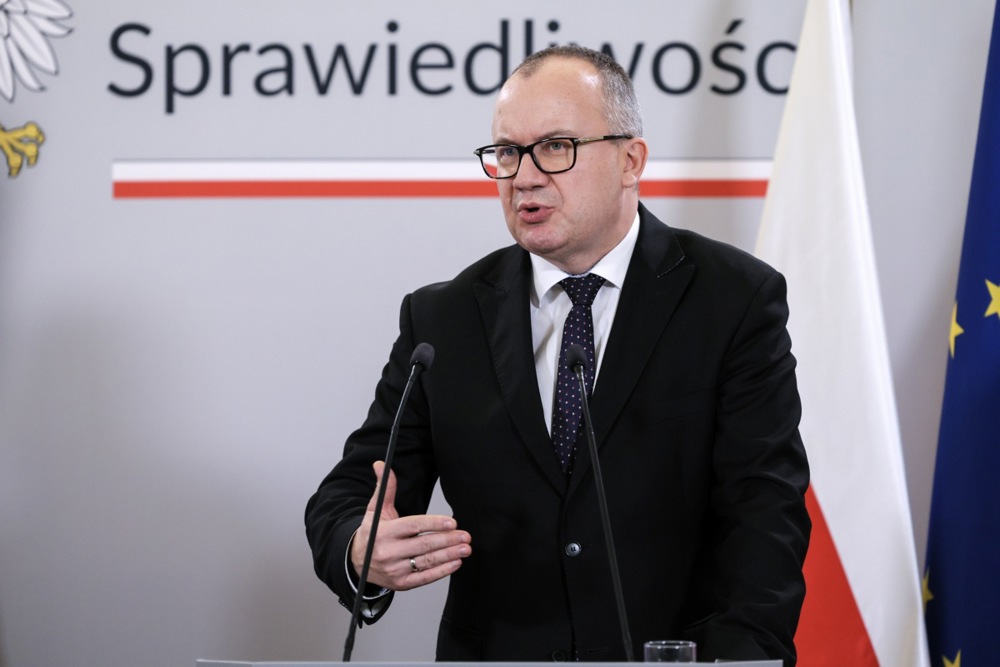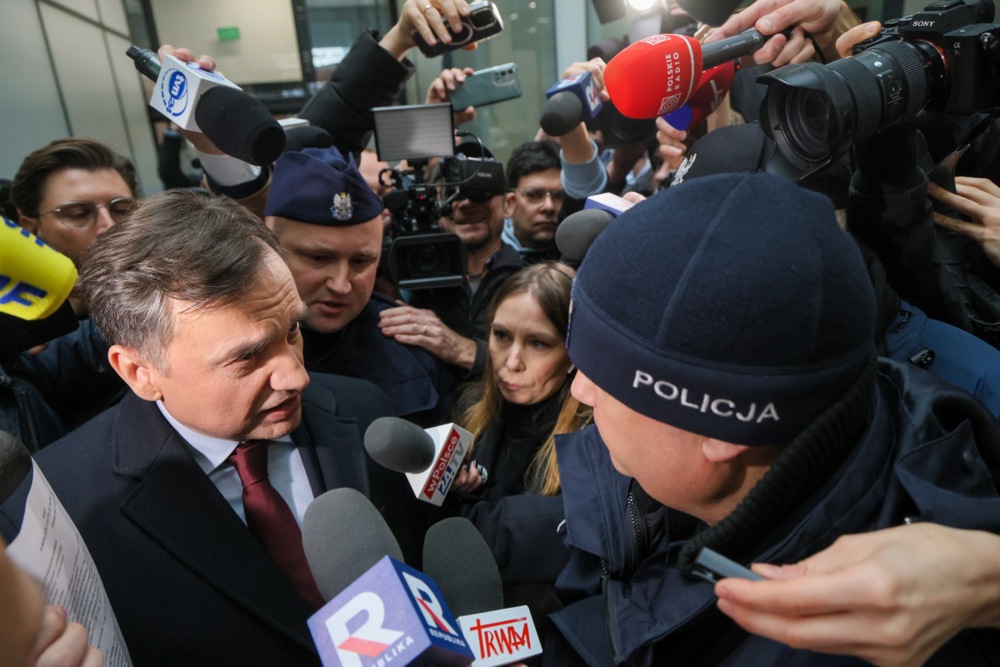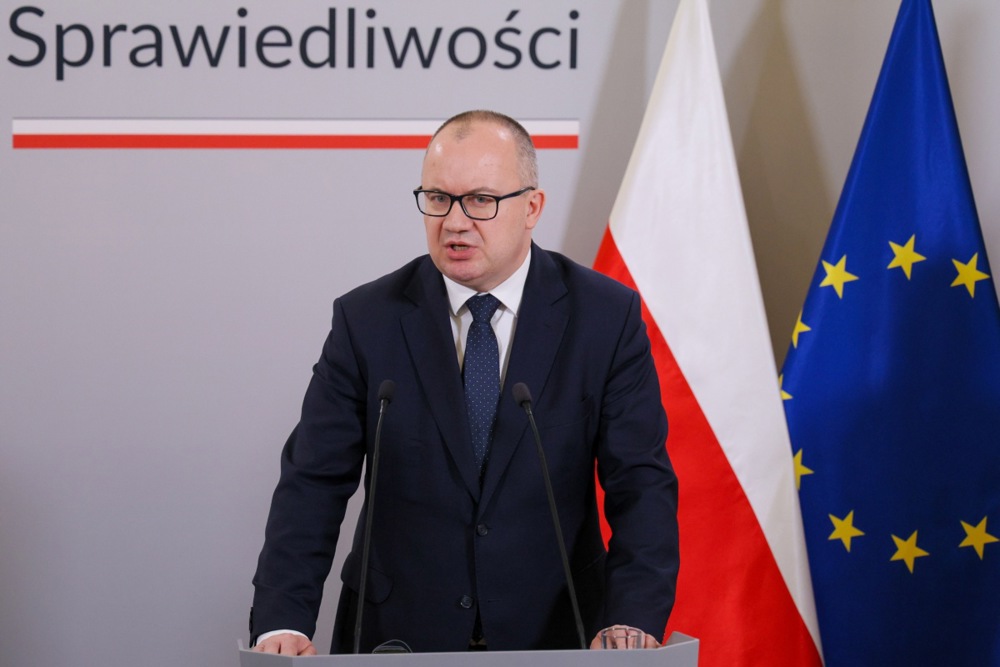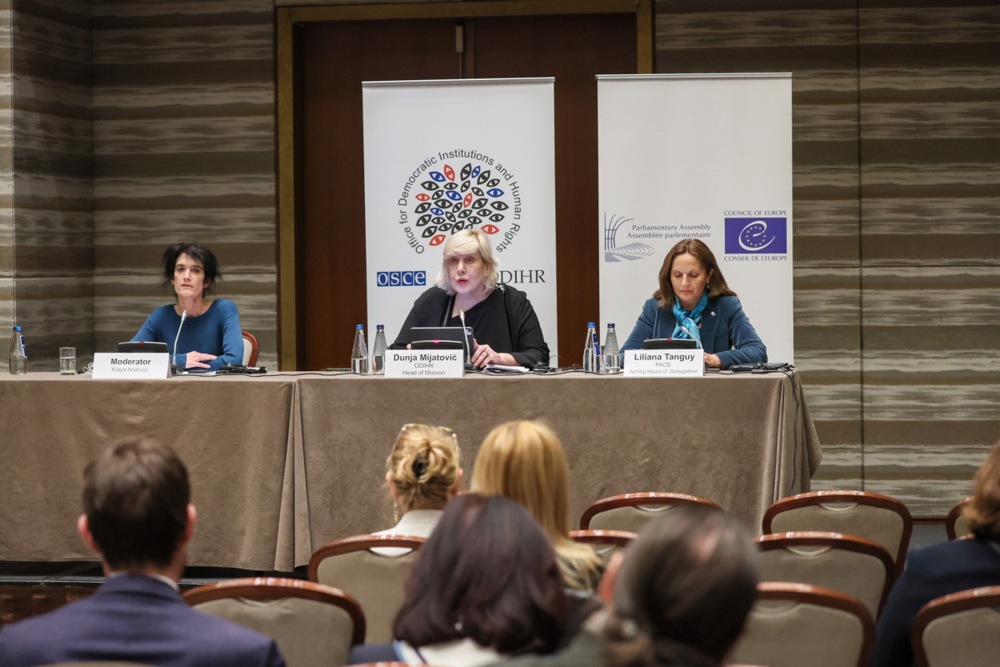The campaign manager of the losing Polish presidential candidate Rafał Trzaskowski has encouraged people to submit reports of irregularities during vote counting in the ballot on a specially created website.
Trzaskowski was the candidate from Prime Minister Donald Tusk’s Civic Coalition (KO) party for the June 2 contest.
Meanwhile, justice minister Adam Bodnar has appeared on television to cast doubt on the legitimacy of the court charged with validating the election victory of right-wing Conservative (PiS) candidate Karol Nawrocki.
Bodnar suggested that the government and parliament may end up refusing to allow the president-elect to take the oath of office.
But the PiS’ former education minister Przemysław Czarnek MP pointed to the fact that the Organisation for Security and Co-operation in Europe (OSCE) observers’ mission had not found any irregularities with regard to the way election had been conducted or how counting of the votes had been handled.
Tusk has sought to calm concerns, writing on social media that, while “every reported case of irregularities in the counting of the votes is being checked and analysed, claiming that the elections were rigged does not serve the Polish state”. That has not stopped his party and government colleagues from escalating the issue.
Trzaskowski lost by almost 370,000 votes (50.9 to 49.1 per cent) out of about 21 million ballots cast on a turnout of 72 per cent.
On June 5, his campaign manager Wioletta Paprocka took to social media to urge people to report irregularities they had noticed in the electoral process to a special website created by the campaign.
“We will contact the PKW [election regulator] to clarify each of these cases,” wrote Paprocka. She also referred polling stations where reports of alleged irregularities had emerged in the shape of Trzaskowski polling fewer votes in the second round than he had gained in the first round on May 18.
Digital affairs minister Krzysztof Gawkowski told reporters that “if these errors are isolated examples then they may have been accidental. However, if there are hundreds of them we may be dealing with an organised action of a criminal nature”.
KO MP Roman Giertych claimed that “information about irregularities in the reports from polling stations are coming from all over the country”, including an allegation over the unauthorised use of an app to check whether individuals had the right to vote.
“Namely, in many commissions, the results of the vote in the second round of the election do not correspond to those from the first round. If in some we have an increase for Mr Nawrocki by 400 per cent, and a decrease for Trzaskowski, it is obvious that an error, or rather fraud has occurred,” he said.
In one incident of alleged miscounting of votes, it has already been admitted that the polling station’s election officers mistakenly attributed Trzaskowski’s result to Nawrocki, costing the former just over 600 votes.
Asked about the specific incident in which a mistake had been made, the state electoral commission (PKW) said there was no legal basis for it to order a recount. That could only happen if a protest is lodged with the Supreme Court and it ordered a recount, it said.
Analysis of polling station results by independent broadcaster Kanał Zero showed that in the 32,000 used in the election in only 130 did Trzaskowski receive a fewer votes in the second than the first round. In 114 stations it was Nawrocki who got fewer votes than he had obtained in the first round.
Liberal-leaning portal Onet reported it had identified 15 instances where the result in a given polling station may have been switched, 12 reducing the vote for Trzaskowski and three for Nawroccki, that it said may have augmented Nawrocki’s majority by around 6,000 out of 370,000 votes.
The polling stations concerned in total accounted for less than 1 per cent of the total number of votes cast in the election and also less than Nawrocki’s margin of victory.
Czarnek responded to the allegations from Trzaskowski’s campaign by saying that Tusk’s party were behaving like “sore losers”. He claimed there were far more reported irregularities in favour of Trzaskowski, with thousands having been reported on the website PiS launched ahead of the election.
Since the party won the election it would not be filing any protests with the Supreme Court. That was despite revelations that emerged during the election of Trzaskowski’s campaign benefiting from foreign funding and the fact that the government withheld the PiS’ State funding even though a court ordered its release.
If protests were submitted to the Supreme Court by the deadline of June 14, the situation would be complicated by the fact that the Supervisory Chamber of the Supreme Court, the body tasked with overseeing challenges to the election results and validating the whole process, was regarded as illegitimate by the current Tusk government.
That was because the justices who were members of that court were appointed by the previous PiS government and they have been challenged by the European Court of Justice (ECJ).
Notably, even prior to the official announcement of the election results by the PKW, Bodnar urged the chief justice of the Supreme Court to seek “means by which controversy over the validity of the presidential election may be avoided”.
He argued that the validation should be carried out by a panel of judges from the ranks of the Supreme Court whose appointments have not been questioned either by the government or the ECJ.
Bodnar appeared on government-controlled broadcaster TVP on June 8 and said: “It is not clear whether the government will publish the decision taken by a court that it considers to be illegitimate.
“It will be up to the Speaker of Parliament Szymon Hołownia to decide whether to call a meeting of parliament at which the president-elect will take the oath of office.”
If the Tusk government-allied Hołownia decided that Nawrocki could take the oath, then he would assume the role of head of state on the day that outgoing PiS-allied President Andre Duda’s second and final term expired on August 6.
Bodnar failed to explain why the same Supervisory Chamber’s validation of the results of the parliamentary elections results in 2023 and local and European parliamentary elections in 2024 were accepted by the Tusk government.
Duda on June 9 took to X to warn against a “campaign to overturn the election result”.
“We have to be on guard that they may try to steal this election and stop them,” he wrote.





